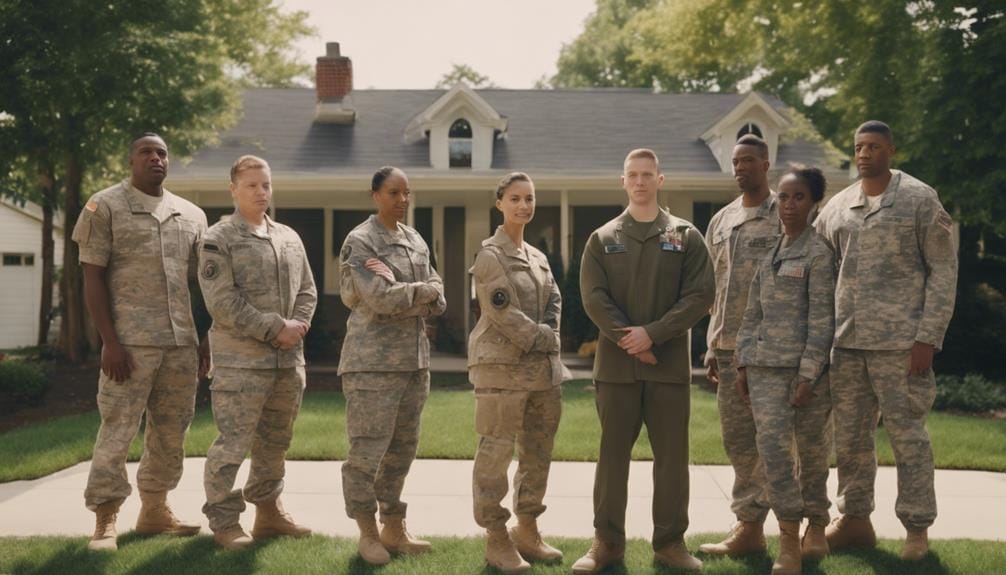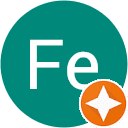Are you considering VA loans for your home financing needs? VA loans offer competitive interest rates, lenient credit requirements, and attractive benefits like no down payment and no private mortgage insurance. These advantages make VA loans a compelling option for eligible individuals.
To learn more about the types of VA loans, eligibility criteria, and the application process, read on to gain a comprehensive understanding of the benefits they offer.
As you navigate the world of VA loans, it’s essential to have the guidance of a knowledgeable professional. Wendy Landeros, a skilled Mortgage Loan Officer in the San Francisco Bay Area, has extensive experience in helping clients secure VA loans tailored to their specific needs.
Stay tuned to discover how Wendy can assist you in making informed decisions and obtaining the ideal VA loan for your situation.
Understanding VA Loans

To understand the core concepts of VA loans, explore the detailed guide on understanding VA Loans.
When delving into VA loan refinancing options, veterans can benefit from the flexibility to refinance their current VA loan into a new one, potentially lowering their interest rates or switching from an adjustable-rate mortgage to a fixed-rate mortgage.
Understanding VA appraisal is important as it guarantees that the property meets the VA’s minimum property requirements to protect both the buyer and the VA.
It’s essential to be aware of VA loan closing costs, which may include appraisal fees, origination fees, title insurance, and more.
Additionally, familiarizing yourself with VA loan credit requirements is crucial as they’re generally more lenient compared to conventional loans, making homeownership more accessible to veterans.
Finally, being informed about VA loan occupancy rules is key, as these loans are intended for primary residences, not investment properties. Ensuring compliance with these rules is essential to maintain eligibility and benefits associated with VA loans.
Types of VA Loans
When exploring VA loans, understanding the various types available can provide valuable options tailored to your specific homeownership needs. Here are three key types of VA loans to ponder:
- VA Home Purchase Loan: This type of financing allows you to purchase a home with no down payment, making homeownership more accessible. VA loans typically offer competitive interest rates, making them an attractive option for eligible borrowers.
- VA Cash-Out Refinance: With this option, you can refinance your existing mortgage for more than you currently owe and receive the difference in cash. This can be beneficial for home improvements, debt consolidation, or other financial needs. It’s important to compare interest rates and fees to confirm it aligns with your goals.
- VA Rate/Term Refinance: This loan type enables you to refinance your current VA loan to adjust the interest rate or term of the loan. By refinancing, you may be able to secure a lower interest rate, potentially reducing your monthly payments. Your credit score and the current market conditions can impact the new interest rate, so it’s vital to evaluate the overall cost savings against any associated fees.
Understanding these types of VA loans can help you make an informed decision based on your credit score, down payment capabilities, and long-term financial objectives.
VA Loan Eligibility Criteria

Eligibility for VA loans is determined based on specific service requirements met by veterans, service members, and surviving spouses. To qualify, individuals must meet eligibility requirements based on their service qualifications, ensuring they’ve served during peacetime or wartime as per VA guidelines. Specific criteria must be met, with eligibility varying depending on one’s service history and type of service. Veterans, service members, and surviving spouses must apply for a Certificate of Eligibility (COE) to demonstrate proof of service and initiate the loan process.
In certain special circumstances, individuals may still qualify for a COE without meeting the minimum service requirements. Discharge exceptions such as hardship, convenience of the government, early out, reduction in force, certain medical conditions, or service-connected disabilities may be considered for eligibility. Surviving spouses of veterans or spouses of Prisoners of War (POWs) may also be eligible under specific conditions. Additionally, U.S. citizens who’ve served in allied forces or certain organizations may qualify for VA loan benefits.
Understanding these eligibility criteria, service qualifications, special circumstances, COE application process, and discharge exceptions is important in determining your eligibility for VA loans. Meeting these requirements ensures that you can access the numerous benefits and opportunities provided by VA loans.
Certificate of Eligibility (COE)
Demonstrating proof of service through a Certificate of Eligibility (COE) is essential to kickstart your journey towards accessing VA loan benefits. Here’s what you need to know about COE:
- COE Application Process:
- The COE can be requested online through the VA portal, via your lender, or by mail.
- COE Eligibility Requirements:
- To qualify for a COE, you must meet specific service criteria, including minimum active-duty service requirements or reserve duty criteria.
- COE for Surviving Spouses, Allied Forces, and Special Circumstances:
- Surviving spouses of veterans or spouses of prisoners of war may be eligible for a COE.
- U.S. citizens who served in allied forces or certain organization members may also qualify for a COE.
- In special circumstances like discharge for medical conditions or service-connected disabilities, you might be eligible for a COE even without meeting the minimum service requirements.
Understanding the COE application process, meeting the eligibility requirements, and exploring COE options for surviving spouses, allied forces members, and special circumstances will pave the way for you to access the benefits of VA loans efficiently.
Benefits of VA Loans

Discover the myriad benefits that VA loans offer to eligible individuals seeking to start their homeownership dreams. VA loans present numerous advantages that cater specifically to veterans and their families. One of the standout features is the ability to initiate financing without the need for a down payment, making homeownership more accessible. Additionally, VA loans typically have lower interest rates compared to conventional loans, resulting in cost savings over the life of the loan.
Moreover, VA loans don’t require private mortgage insurance (PMI), which can lead to significant monthly savings. The loan process for VA loans is streamlined, with lenient borrowing requirements, including higher debt-to-income ratios and lower credit score requirements, providing financial assistance and support to veterans throughout the homeownership journey.
Disabled veterans benefit from additional perks such as exemption from funding fees and access to housing grants, further enhancing the advantages of VA loans. By meeting the eligibility requirements and following the guidelines set forth for VA loans, veterans can start on the path to homeownership with confidence, knowing that they’ve a robust support system in place to assist them every step of the way.
VA Loan Application Process
To initiate the VA loan application process, begin by securing a Certificate of Eligibility (COE) to demonstrate your qualification for this beneficial program. Once you have your COE in hand, you’re ready to move forward with your VA loan application.
Here are some key points to keep in mind during the application process:
- VA Loan Refinancing Options: Familiarize yourself with the various VA loan refinancing alternatives available to determine the best fit for your financial goals.
- VA Loan Credit Requirements: Understand the credit prerequisites specific to VA loans and take steps to make certain your credit history meets the necessary standards.
- VA Loan Appraisal Process: Be prepared for the VA loan appraisal procedure, which assesses the value of the property you intend to purchase.
As you progress through the application process, keep in mind these additional suggestions:
- VA Loan Underwriting Tips: Provide all requested documentation promptly and collaborate closely with your lender to expedite the underwriting process.
- VA Loan Closing Costs: Familiarize yourself with potential closing expenses associated with VA loans and plan accordingly to cover these costs.
Importance of Preapproval

Securing preapproval for a VA loan is an essential step in the homebuying process, ensuring you have a clear understanding of your affordability and a competitive edge when making offers. Preapproval involves a thorough review of your financial situation by a lender, which goes beyond prequalification. It allows you to determine the maximum loan amount you can qualify for based on your income, credit score, and other financial factors. By obtaining preapproval, you demonstrate to sellers that you’re a serious buyer with the means to secure financing, potentially giving you an advantage in a competitive housing market.
The approval process typically involves submitting financial documents such as pay stubs, tax returns, and bank statements. This thorough evaluation not only helps you understand your mortgage affordability but also streamlines the final loan approval process once you find the right property. Additionally, preapproval can help you identify and address any potential issues that may arise during the underwriting process, increasing your chances of a smooth loan approval.
Extra VA Loan Advantages
Interested in learning about the additional benefits that come with VA loans? Here are some key points to explore:
- Additional Benefits: VA loans offer added benefits beyond traditional loans, such as no down payment requirement, lower interest rates, and no private mortgage insurance. These perks can save you money in the long run and make homeownership more accessible.
- Special Circumstances: VA loans cater to special circumstances, like disabled veterans who may be exempt from funding fees and have access to housing grants. Surviving spouses of veterans or prisoners of war, as well as certain allied forces or organization members, may also qualify for VA loan benefits.
- Unique Advantages: VA loans provide unique advantages like property tax exemptions for disabled veterans and additional resources for further information on VA loans, construction loans, and VA loan forbearance. These benefits can make a significant difference in the overall affordability and accessibility of homeownership for eligible individuals.
With these extra perks, added benefits, and special considerations, VA loans stand out as a supportive and advantageous option for those who’ve served in the military or are connected to eligible service members.
Resources for VA Loans

Explore the diverse range of resources available to assist with VA loans, enhancing your understanding and access to valuable support for your home financing needs.
| Resource | Description | Benefits |
|---|---|---|
| VA Loan Refinancing | Learn about refinancing options for your VA loan, potentially lowering your interest rate or changing the loan term to better suit your financial goals. | – Lower interest rates – Adjust terms for better financial management |
| VA Loan Limits | Understand the maximum amount you can borrow with a VA loan based on where you live, helping you plan your home purchase within the set loan limits. | – Clear understanding of your borrowing capacity – Helps in budgeting and selecting appropriate properties |
| VA Loan Fees | Familiarize yourself with the fees associated with VA loans, including funding fees and closing costs, to avoid surprises during the loan application process. | – Transparency in costs involved – Ability to plan for additional expenses |
| VA Loan Requirements | Get detailed information on the eligibility criteria and documentation needed for a VA loan, ensuring you meet all prerequisites for a smooth loan approval process. | – Clarity on eligibility criteria – Prepare necessary documents in advance for a quicker loan approval |
| VA Loan Comparison | Compare VA loans with conventional loans or other mortgage options to determine the best fit for your financial situation and homeownership goals. | – Evaluate different loan options – Choose the most suitable loan for your needs and financial objectives |
About VA Home Loans
Explore the essential details about VA Home Loans to aid in your understanding of this beneficial homeownership opportunity. VA loans are supported by the U.S. Department of Veterans Affairs, providing veterans with favorable terms and benefits. Here are key points to ponder:
- VA Loan Misconceptions: Contrary to some beliefs, VA loans aren’t just for first-time homebuyers, and they can be used multiple times by eligible borrowers. Grasping the true nature of VA loans can help you make informed decisions.
- VA Loan Refinancing Options: VA loans offer various refinancing options, such as the Interest Rate Reduction Refinance Loan (IRRRL) and Cash-Out Refinance, allowing you to adjust your mortgage terms to better suit your financial needs.
- VA Loan Credit Requirements: While VA loans are known for more lenient credit requirements compared to conventional loans, maintaining a good credit score is still essential for securing favorable interest rates and terms.
When pondering a VA loan, confirm the property meets VA loan property eligibility requirements and be prepared for potential VA loan closing costs. By dispelling misconceptions, understanding refinancing options, and meeting credit requirements, you can maximize the benefits of a VA Home Loan and achieve your homeownership goals.
Home Buying With VA Loans

To navigate the process of home buying with VA loans, understanding the specific guidelines and benefits is crucial for a successful and efficient experience. Homeownership benefits through VA loans include lower interest rates, no down payment requirement, and exemption from private mortgage insurance. Military service members and veterans can leverage these advantages to achieve their dream of owning a home.
Additionally, VA loans offer opportunities for loan refinancing, such as the VA Cash-Out Refinance and VA Rate/Term Refinance, providing flexibility for homeowners to adjust their mortgage terms to suit their financial goals.
When purchasing a home with a VA loan, it’s important to take into account property taxes. Disabled veterans may be eligible for property tax exemptions as an additional perk. VA loans also provide disability grants to support those with service-related injuries in making necessary home modifications for accessibility and comfort.
Understanding these aspects of the VA loan program can heavily impact your home buying journey, ensuring you make informed decisions that align with your needs and financial circumstances. By taking advantage of the benefits provided, you can achieve the goal of homeownership with the support and advantages tailored to military service members and veterans.
How to Apply for VA Loans
Applying for VA Loans starts with obtaining a Certificate of Eligibility (COE) to establish your qualification for this beneficial home loan program. Once you have your COE, you can proceed with the application process to secure your VA loan. Here are three key steps to guide you through the application process:
- Loan Approval: After obtaining your COE, you’ll need to apply for loan approval through a VA-approved lender. They’ll assess your financial situation, creditworthiness, and eligibility for the loan program.
- Funding Options: VA loans offer various funding options, including no down payment requirements and favorable terms. Your lender will guide you through the available options based on your financial profile and the type of VA loan you’re pursuing.
- Credit Requirements: While VA loans generally have more lenient credit requirements compared to conventional loans, your credit history will still play a role in the approval process. Maintaining a good credit score can enhance your chances of securing a VA loan with favorable terms.
Once your loan is approved, the next steps involve property inspection, where the property’s condition is evaluated to meet VA loan standards, and finally, loan closing, where all necessary paperwork is signed to complete the loan process.
Additional VA Loan Programs

After securing your Certificate of Eligibility (COE) for a VA loan, exploring the Additional VA Loan Programs can provide tailored financial support for your specific needs and circumstances. These programs offer various options to enhance your VA loan experience.
VA loan refinancing options like the Interest Rate Reduction Refinance Loan (IRRRL) allow you to refinance your current VA loan into a new one with better terms, saving you money in the long run. Additionally, VA construction loans enable you to build your dream home with the backing of the VA, ensuring a smooth and cost-effective construction process.
For those facing financial hardships, VA loan forbearance programs provide temporary relief by allowing you to pause or reduce your mortgage payments for a specific period. Furthermore, VA loan housing grants, such as the Specially Adapted Housing (SAH) and Special Housing Adaptation (SHA) grants, cater to specific disabilities, offering financial assistance to modify your home for accessibility and independence.
External Resources and Support
Explore the diverse range of external resources and support available to enhance your understanding and utilization of VA loan benefits. When exploring the world of VA loans, access to external resources and support can be invaluable in guaranteeing you make informed decisions and optimize the benefits you’re entitled to. Here are three key points to ponder:
- Crisis Support: In times of need, it is crucial to know where to turn for support. VA resources provide crisis support and suicide prevention resources to guarantee the well-being of veterans and their families. Visit VeteransCrisisLine.net for immediate assistance in times of crisis.
- VA Resources: The VA website is a treasure trove of information and external links that can further enrich your knowledge about VA loans and related benefits. While the VA doesn’t endorse content on external websites, these resources can offer updated information and insights to aid in your decision-making process.
- Contact Information: Should you require direct assistance or have specific inquiries regarding VA loans, contact information for the U.S. Department of Veterans Affairs is readily available. Stay informed and updated by reaching out to the relevant authorities for personalized support and guidance.
Getting a Certificate of Eligibility

To acquire a Certificate of Eligibility (COE) for a VA loan, you can request it online through the appropriate channels. The process of applying online for your COE is simple and effective. The eligibility requirements for obtaining a COE typically involve meeting specific service criteria, such as a minimum number of days in active duty or reserve duty. However, if you find yourself in special circumstances where you don’t meet the minimum service requirements, you may still qualify for a COE. Special circumstances could include being discharged for hardship, convenience of the government, early out, reduction in force, certain medical conditions, or having a service-connected disability.
In unique cases, individuals like surviving spouses of Veterans, spouses of prisoners of war (POWs), U.S. citizens who served in allied forces, or members of certain organizations may also be eligible for a COE. It’s crucial to understand the qualifying criteria for obtaining a COE to guarantee a smooth application process for your VA loan. By following the necessary steps and providing the required documentation, you can obtain your COE and move forward with securing the benefits of a VA loan.
Frequently Asked Questions
Can VA Loans Be Used to Purchase Investment Properties or Rental Homes?
If you’re contemplating investment properties or rental homes, VA loans generally can’t be used for these purposes. VA loans are intended for primary residences, not for investment opportunities.
However, you might explore alternative loan options for such property types. It’s important to understand the terms of VA loans, including any early payoff penalties, to make informed decisions.
Make sure you research and select the best financing option tailored to your investment goals.
Are There Any Restrictions on the Types of Properties That Can Be Purchased Using a VA Loan?
When contemplating properties for purchase with a VA loan, it’s crucial to bear in mind certain restrictions.
Qualified properties usually consist of:
- Single-family homes
- Condos in authorized developments
- Some multi-unit properties if you plan to reside in one unit
Restrictions may be applicable to vacation homes, investment properties, or fixer-uppers.
Grasping these limitations guarantees a seamless home buying process within the boundaries of your VA loan eligibility.
How Does Divorce or Separation Affect VA Loan Eligibility for a Veteran or Service Member?
If divorce or separation occurs, it may impact your VA loan eligibility. Factors like spousal support, financial changes, custody arrangements, and legal aspects can influence qualification.
Understanding these implications is crucial to navigate any challenges. Seek guidance from VA resources and legal experts to address these complexities effectively and guarantee your eligibility status aligns with VA loan requirements.
Stay informed to make informed decisions during this process.
Are There Any Penalties for Paying off a VA Loan Early?
When it comes to paying off your VA loan early, imagine a clear path ahead with no obstacles. There are typically no penalties for early payoff, giving you the freedom to refinance, improve your credit score, and enjoy the flexibility of your loan term.
Embrace the financial benefits of saving on interest and becoming debt-free sooner. So, feel empowered to take charge of your financial future without fear of repercussions for settling your loan ahead of schedule.
Can VA Loans Be Used for Purchasing Vacation Homes or Second Residences?
Yes, VA loans can be used for purchasing vacation homes or second residences, but there are restrictions. To be eligible, you must intend to personally occupy the property. These loans aren’t for investment properties or rental homes. Using a VA loan for these purposes could lead to penalties.
In cases of divorce or separation, additional considerations may apply. Make sure to fully understand the guidelines before proceeding with a VA loan for vacation or second homes.
Conclusion
In conclusion, VA Loans offer incredible opportunities for veterans and service members to realize their dream of owning a home. With benefits like no down payment options, lower interest rates, and flexible borrowing requirements, taking advantage of a VA Loan can truly make a difference in your homeownership journey.
Navigating the world of home loans can be complex, so having expert guidance is essential.
If you’re looking for personalized assistance and expert advice in securing a VA Loan, Wendy Landeros is here to help. With her wealth of experience and knowledge in the field, Wendy can provide the support you need to make informed decisions about your home financing.
Don’t miss out on the benefits you deserve – reach out to Wendy Landeros today for a consultation. You can connect with her by filling out a form on the page or giving her a call at 925-234-1912. Take the first step towards achieving your homeownership goals with Wendy’s guidance by your side.
Related Posts
- The Impact of Tech Giants on the Bay Area Housing Market
- The True Cost of Homeownership: Understanding Closing Costs in the Bay Area
- Down Payment and Closing Cost Strategies
- Unlock Your Dream Home: Explore Mortgage Loans in Walnut Creek, San Ramon, and Danville, CA!
- Negotiating Closing Costs With Sellers in the Bay Area Real Estate Market
- Quickly Secure Your Home Loan with Wendy Landero’s Mortgage Pre-Approval!
- Hard Money Bridge Loans for Single Family Homes in Walnut Creek, CA – Hassle-Free Financing Solutions
- 7 Tips for Securing Mortgage Assistance for California Newbies










